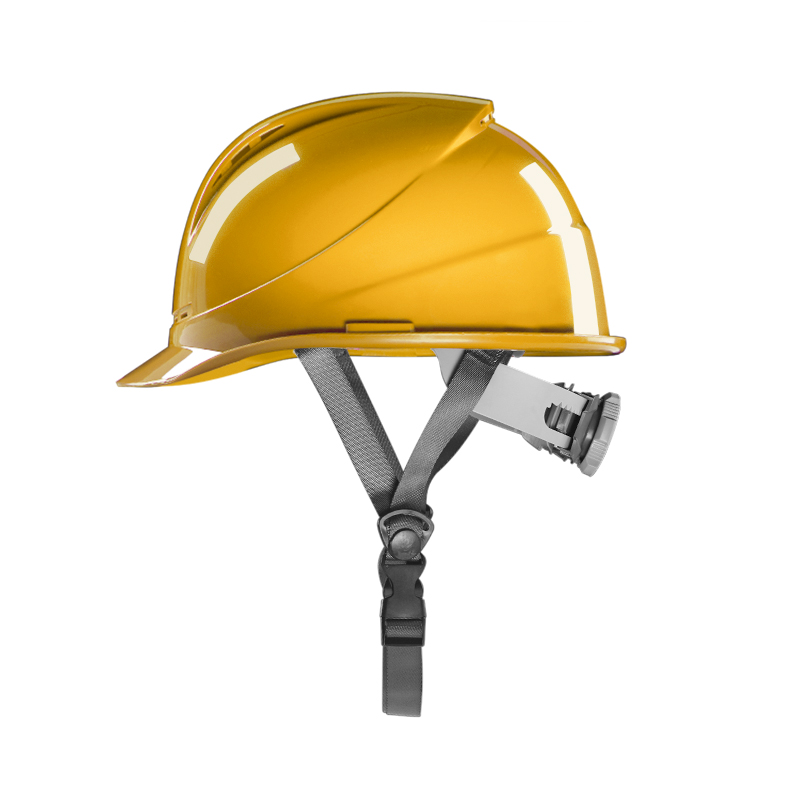Safety has always been a very important issue in all industrial activities, especially in the construction industry. After all, this is no ordinary office job, and many precautions must be taken. Accidents and injuries on construction sites are less likely to occur the better prepared workers are.
The head is the only organ in the human body that is completely encased in bone. This law of nature explains the importance of protecting the brain, a very important functional component of our body. Hard hats or helmets are the first line of defense against head injuries, but they only work if they are worn correctly. Therefore, it can be said that safety helmets save lives and reduce the risk of brain injury.
Most head injuries can be avoided if proper head protection is selected, used and maintained. Anyone who has been to a construction site can attest to the fact that some workers don't quite comply with signs requiring them to wear safety helmets or hard hats when entering a job site. There are many reasons for this, including mismatched comfort and misinformation that caused people to ignore or disregard safety helmets.
According to reports published in a number of journals, in the majority of cases where head trauma occurs, the employer's failure to actually require workers to wear head protection is strictly mentioned. Therefore, employers should consider implementing technical or administrative controls to minimize or eliminate exposure to the problem, if practicable.

The following points further enumerate the benefits of wearing a helmet at work and keeping yourself safe from any kind of injury.
#1. Protection against head injuries
Safety helmets are designed to protect the head from falling objects and to protect the head, eyes and neck from any accidental impact, collision, scratch and electric shock. Wearing helmets is a mandatory requirement that should be followed by all employers, who should provide hard hats/helmets to their workers and adequately ensure that they are worn by their workers. With an average of hundreds of workers suffering fatal head injuries each year, hard hats are a key feature of workplace safety.
#2. Industrial protection
In some industrial settings, the risk of head trauma is so high that regular industrial safety helmets at work do not provide adequate protection. For example, in industrial sectors such as mining and construction. In such cases, employees should be provided with high-performance industrial safety helmets, which also include a shell and headband with good shock absorption properties and protection against lateral impacts. Protective padding is also required to absorb the energy generated by the impact and reduce the force transmitted to the user's head. Such pads are usually composed of elements such as foam or polyurethane.
#3. Colours and Stickers for identification
Typically, helmets come in a variety of colors, signifying the different roles of the wearer on a construction site. The designation of these colors varies from company to company. Often, with some companies, employees of the same company may wear the same color hat when they are involved in large projects. In most cases, supervisors are not familiar with all the workers on a construction site. Therefore, stickers, labels and markers are used to mark helmets in order to share and convey important information without any delays and failures. As a result, stickers with company logos are very common on construction sites.
Final Conclusion About the Safety Hard Helmet
Finally, proven and highly reliable occupational accident statistics show that the most common causes of head injuries are being struck by falling objects and being struck by sharp and hard objects. Such mechanical accidental injuries can have brutal effects on the head, skull, brain, neck skin, and sometimes even the spinal cord. So always wear a safety helmet at work, ensure adequate protection, and come bim to cause irreparable damage and pain to you or your loved ones.
Are you a safety manager who is in the process of purchasing new safety helmets for your employees? If so, T-Safety can be your most trusted choice. We offer a wide range of high quality safety helmets and other PPE products designed to keep workers safe on the job. Feel free to contact us to learn more.
Copyright © Hebei Sinotools Industrial Co.,Ltd. All Rights Reserved | Powered by  Sitemap
Sitemap